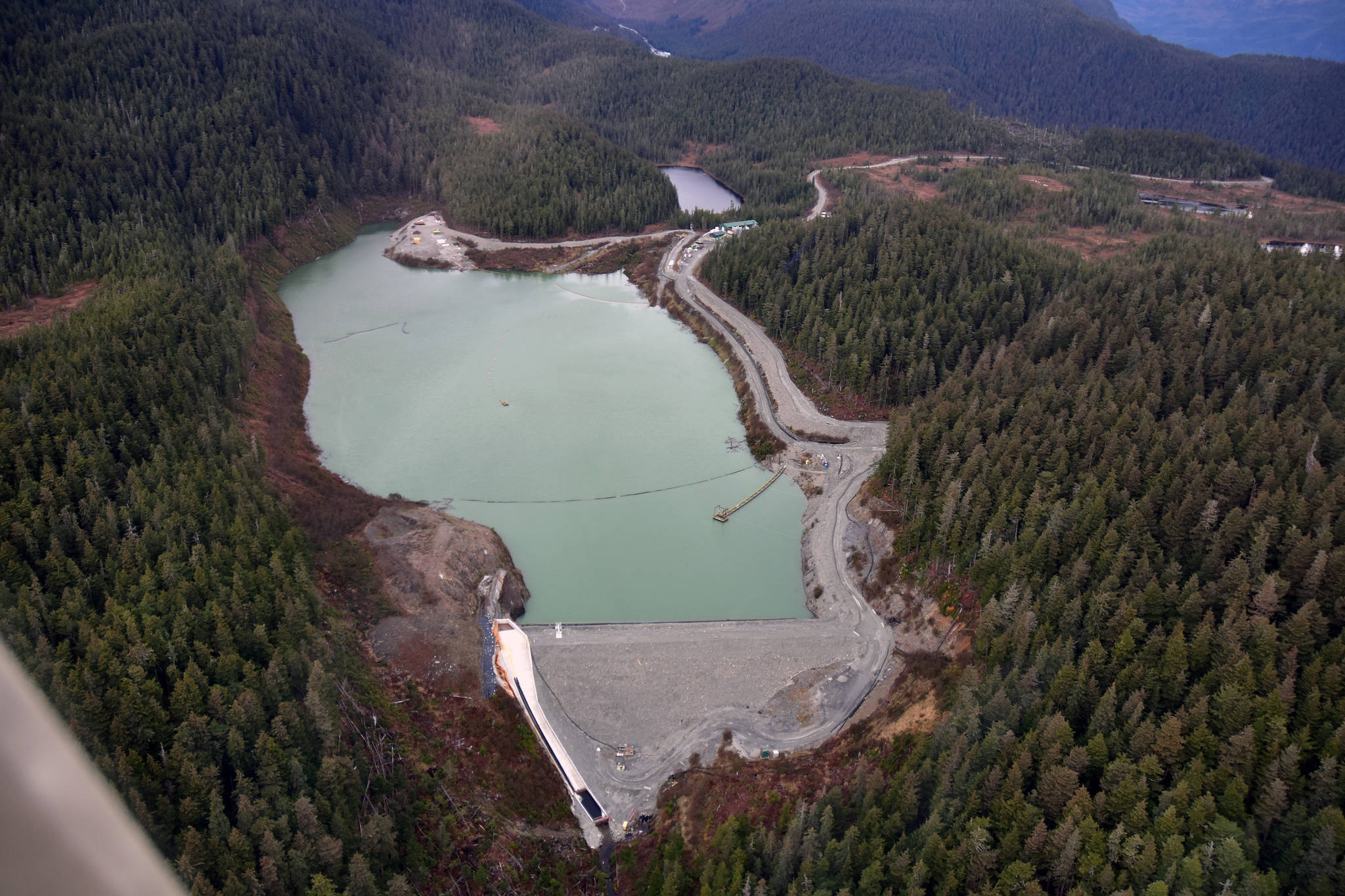The U.S. Forest Service said it plans to approve Coeur Alaska’s plan to expand facilities at the Kensington Gold Mine, extending the life of the mine by another 10 years. In a release Friday, the Forest Service said those who submitted public comment now have 45 days to submit an objection to the plan.
The release of the final supplemental environmental impact statement on and draft record of decision begins the objection period open to anyone who provided input during previous comment periods, the Forest Service said. The 45-day period begins July 9, said Forest Service spokesperson Paul Robbins. Kensington’s owners, Coeur Alaska, have been trying to expand the life of the mine and have been seeking permits for expanded facilities since 2018.
The DROD released Thursday, said the Forest Service intends to approve Plan of Amendment 1, Coeur’s preferred alternative, from its list of proposals.
“My decision considered that the Selected Alternative was submitted for consideration by the project applicant and that the overall operations would be virtually the same as their current operations,” said Earl Stewart, forest supervisor for the Tongas National Forest, in the draft. “This carries some weight because the mine is experienced in operating this project and meeting environmental requirements and has refined their processing to be efficient.”
The life of the mine — located just north of Berner’s Bay — is currently expected to end in 2023, and the expansion would allow operations to continue until at least 2033.
[Coeur is committed to environment in expansion, mine manager says]
In order to continue operations at the mine, Kensington has to create additional storage areas for waste rock and tailings, materials the company does not take away from the mine. According to the Environmental Protection Agency, waste rock consists of rock and target minerals in concentrations too low for economic recovery and includes granular broken rock ranging from fine sand to large boulders. Tailings are coarsely and finely ground waste portions of mined material remaining after processing operations have removed the valuable constituents from the ore, according to the EPA, and generally produce wastewater.
It’s the wastewater that causes the most concern for environmentalists. Wastewater from mines is typically stored in dammed lakes, which can pose a threat to the environment through dam failure or contaminating the local environment. Coeur needs to expand the dammed lake at the Kensignton Mine in order to make room for the additional waste produced by another 10 years of operation.
The Forest Service noted that ensuring water quality and compliance with existing environmental laws were cited as top concerns for commenters, but said the proposed plan would address those concerns.
“The Selected Alternative includes a high likelihood of providing long-term fish habitat and reclamation of the (tailings lake) to a self-sustaining aquatic system,” according to the DROD. “(The plan) retains operational and closure conditions similar to those that have been established over the last 10 years and approved in the 2013 closure plan.”
The Forest Service received 396 comments, according to the FSEIS, and included support for the project and even extending the life of the mine beyond 2033.
Juneau-based environmental group Southeast Alaska Conservation Council filed a lawsuit against Coeur in 2005 to prevent the company from creating the wastewater facility, but lost in a decision before the U.S. Supreme Court in 2009. In an email Friday, SEACC spokesperson Lauren Cusimano said the group is still reviewing the documents but had not yet made a decision whether or not to object.
Kensington’s general manager Mark Kiessling has said the company has a strong environmental focus and would ensure protections after the life of the mine. Speaking to the Greater Juneau Chamber of Commerce last year, Kiessling said the water treatment facilities currently in place at the lake would remain until the Forest Service and Alaska Department of Environmental Conservation say they’re no longer necessary.
Coeur settled with the EPA in 2019 for more than $500,000, but in an opinion piece to the Empire shortly after, Kiessling said the settlement was over violations that were several years old and which did not reflect the current operating status of the mine.
The public comment period for the plan began last year and was extended for nearly a month in light of the COVID-19 pandemic. According to the Forest Service, only those who submitted specific, timely comments during any of the designated opportunities for public comment may file an objection to the final environmental impact statement and draft record of decision.
Objections can be submitted online, by email, fax or post. Additional information can be found at the Forest Service’s project website.
• Contact reporter Peter Segall at psegall@juneauempire.com. Follow him on Twitter at @SegallJnuEmpire.

